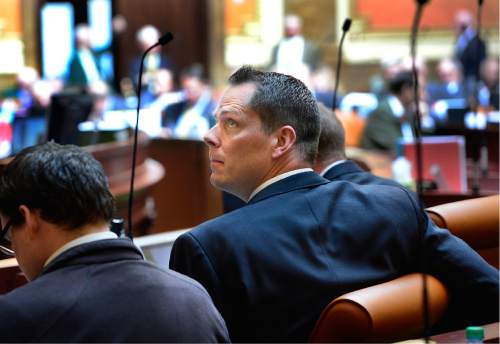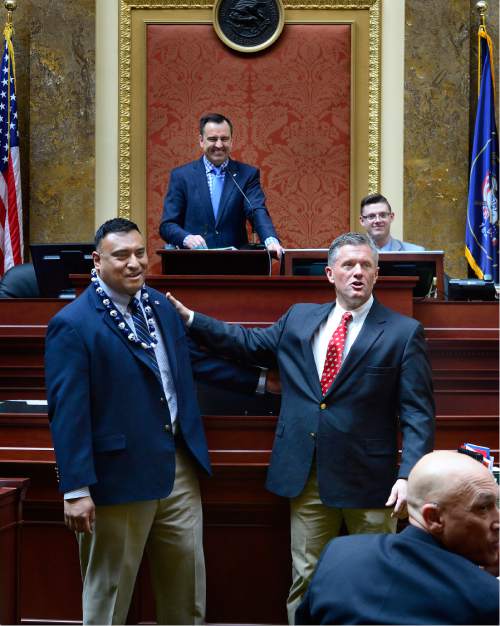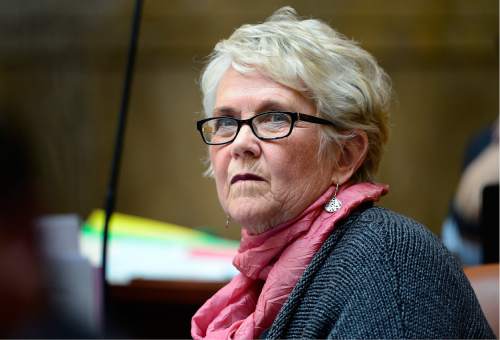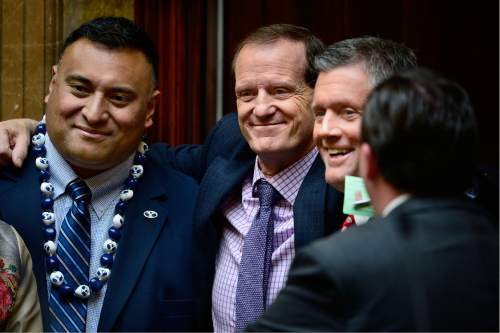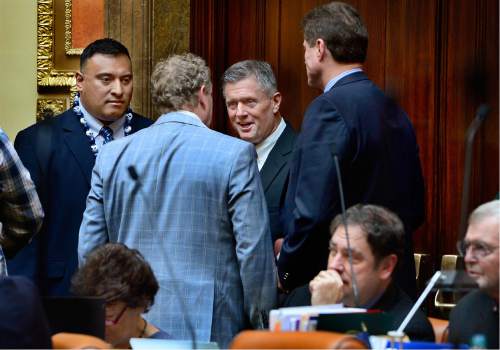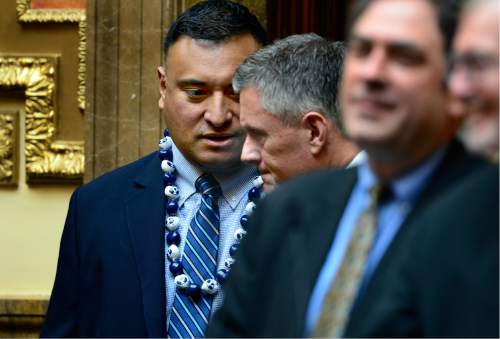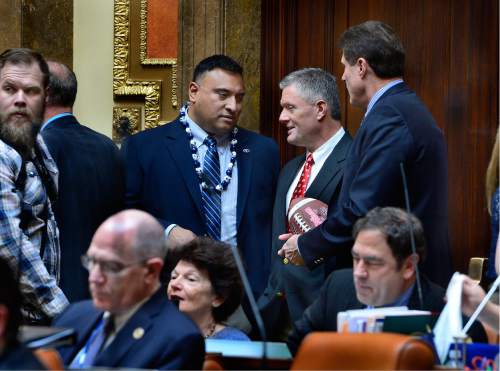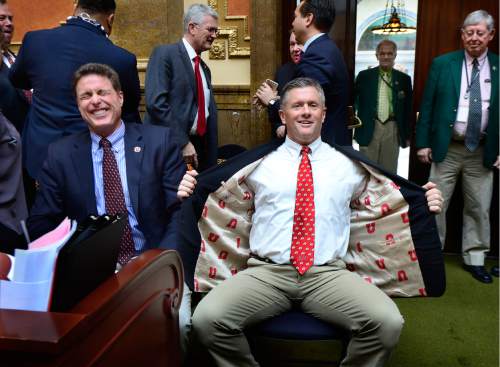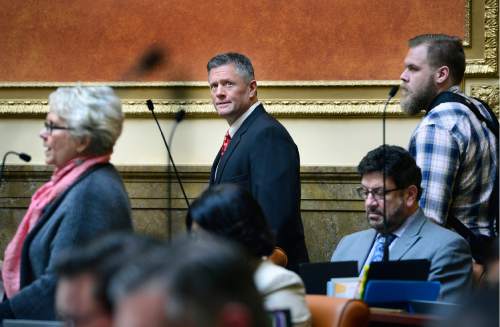This is an archived article that was published on sltrib.com in 2016, and information in the article may be outdated. It is provided only for personal research purposes and may not be reprinted.
A bill making disease education a prerequisite to vaccine exemptions wasn't immune from the back-and-forth of Utah politics on Thursday.
Sponsored by Holladay Democratic Rep. Carol Moss, the proposal called for parents to complete a 20-minute online course before excusing children who attend public schools from the immunizations required under state law.
But an amendment that passed in a 39-35 vote on the House floor would make obtaining an exemption easier than ever, removing the requirement that a parent ever set foot inside their local health department.
The sponsor of that amendment, Lehi Republican Rep. Jacob Anderegg, said his intent was to accommodate residents in Utah's rural areas who face long drives to the nearest health department.
But after the amendment passed, Moss said she could no longer support her own bill and asked her colleagues to circle it, which indefinitely postpones debate.
"I think we've confused a few things here in making it sound so simple," she said.
Utah parents are currently able to claim a medical, religious or personal exemption from vaccines in order to enroll their children in public school without protection from preventable illnesses.
But an increase in the number of exemptions has brought many parts of the state to the brink of losing what is known as "herd immunity," Moss said, or the point at which vaccines are sufficiently ubiquitous, halting the spread of disease.
Moss said herd immunity is essential to public health, in that it protects vulnerable individuals who are unable to be vaccinated from catching preventable illnesses.
"Some of the pushback to this bill is about making it convenient to parents. The focus of this bill and the real goal is to save children's lives," she said.
"The vast majority of parents who want exemptions aren't trying to create a public-health risk, they are concerned with some of the information and the research they've done" Anderegg said.
Moss' bill would create an online education module that includes information on what steps to take in the event of an outbreak, such as withdrawing unimmunized children from school.
In the bill's original form, a parent would have the option of completing the module at home but would then be required to visit their local health department to obtain an exemption form.
The substitute bill would preserve the online module, but would allow parents to receive a record of completing the module that they then could provide to their child's school to satisfy the law's exemption provision.
The burden of visiting the health department has the effect of forcing parents into vaccinating their children, Anderegg said.
"In rural areas where you have to drive more than two hours one way, it is not practical for parents who have objections and concerns to readily get the exemption forms they need without being forced to do this process," Anderegg said.
But Moss argued that compared to the broader issue of public health, the proportion of parents inconvenienced by a trip to the health department is small, particularly when many of those same families are regularly making trips to grocery stores and sporting events.
"It is not an inconvenience and it's so few people," she said.
After the amendment passed, several members of the House pushed for a final vote to be taken despite Moss's requests that she and the bill's supporters be allowed to consider the changes made on the floor.
The issue appeared settled after Mapleton Republican Rep. Francis Gibson, a member of the majority leadership team, spoke in support of circling the bill.
"This is just common decency," he said. "Circle the bill. Let everybody gather their thoughts."
Moss said she hoped the changes could be undone to allow a vote on her original bill.
During the debate, several lawmakers, including members of the majority caucus leadership team, were posing for photographs with the football coaches of Brigham Young University and the University of Utah.
Moss said the disruption may have led to some members of the House being confused about whether they were voting for an amendment or for the bill itself.
Twitter: @bjaminwood


